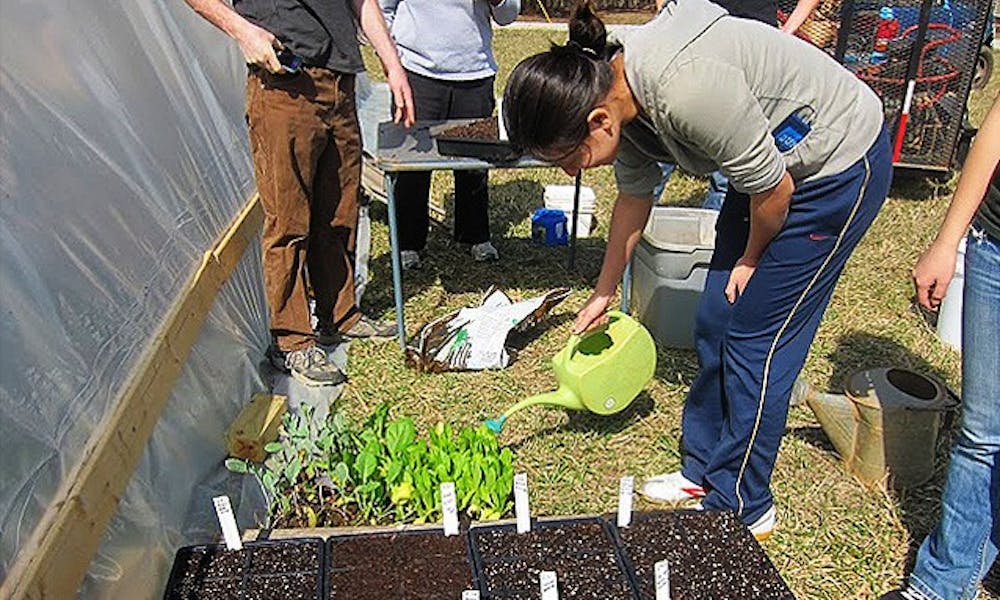Duke’s new on-campus sustainable farm is preparing to reap the fruits of its labor.
With its first harvest scheduled for later this month, the students working on the Duke University Campus Farm are publicizing their efforts to the greater Duke community. Five students founded the Duke Forest-based farm as part of a class project last Spring, Emily Sloss, farm project manager and Trinity ’10, wrote in an email Monday.
The students have since garnered support from Bon Appetit Management Company, faculty members and other students. Bon Appetit, which operates on-campus eateries like the Marketplace and the Great Hall, agreed to purchase 100 percent of the farm’s products. The crops will be collected later this month and served in several Bon Appetit venues, Sloss said.
“Everything is growing beautifully and we have exceeded expectations of where this project would be at this time, considering it was just an idea a year ago,” Sloss said.
Some Duke professors have encouraged their students to get involved with the farm through their classwork.
Charlotte Clark, a visiting professor at the Nicholas School of the Environment, taught the class last semester that sparked interest in the farm. This year, she asked a group of students in her environment course to develop a plan to market the farm.
Marketing proposals include advertising farm work days via listservs and hanging signs on the Bryan Center plaza, holding a house course on the farm and promoting independent studies, said Allyson Morton, a junior in Clark’s class. Morton added that the farm advisory board is responsible for implementing the marketing proposals.
Although the Duke farm is a student-led initiative, the students involved in the project are reaching out to faculty members as well.
Clark said she is planning a faculty workshop at the farm May 9 to encourage Duke professors to incorporate sustainability practices into their syllabi.
Students in a class taught by Martha Reeves, associate director of markets and management studies, developed a marketing plan for the farm as part of their final class project.
“Rather than sell a product, they’re trying to create awareness among the Duke student body that the farm exists,” Reeves said.
Junior Eduardo Leal, who is in Reeves’ class, said his group will film a 30-second television advertisement, as well as use print ads and social media sites such as Facebook to promote the farm. The group is also creating a logo for the farm to “establish a clear and definite brand,” he added.
“What better and more trusted source [is there] than your peers to produce the food that you eat,” Leal said.
Get The Chronicle straight to your inbox
Signup for our weekly newsletter. Cancel at any time.

